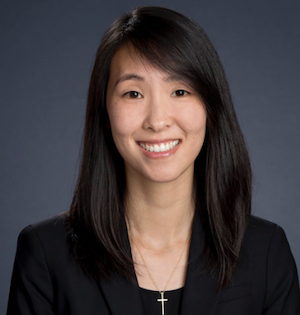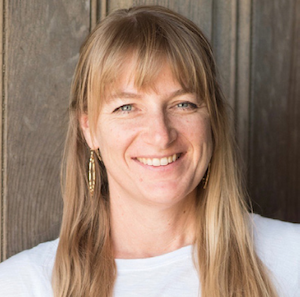Redefining Quality to Center the Capabilities of Young Children
by Soyoung Park, Sunmin Lee, Nnenna Odim, and Jennifer Keys Adair
We have standards we have to meet. We’ve got to get them ready. Kindergarten nowadays is structured. Very, very, very structured. (Teacher Interview)
I think teachers are afraid that if they let kids go, then they’re going to have an increase of behavioral problems … You see in all the rooms. It’s very tightly managed … because I’m like that. I mean, if I’m a leader that’s like that, more than likely my teachers are going to be like that. (Leader Interview)
These two quotes speak to a common and troubling theme when it comes to measuring quality in early childhood: top-down control of children and educators. We became acutely aware of the tendency toward control when we implemented our Dynamic Innovation for Young Children (DIFYC) professional development, in which the teacher and leader quoted were participants. DIFYC was launched as part of a long-term partnership between one district and an institute of higher education. The partnership was centered on a common goal of enhancing agency for young children. When we asked the early childhood teachers and leaders in DIFYC to identify barriers to agentic experiences for young children, they described a culture of surveillance in their schools and programs. This surveillance culture existed in large part because “high-quality early childhood” had come to mean highly controlled environments that were dictated by externally imposed standards.
This conflation of quality with control is not new to early childhood, but has amplified in the years following President Barack Obama’s early learning initiative. Launched in 2013, this initiative incentivized states to improve the quality of early care and education programs by developing standardized measurements of quality that would hold early childhood leaders and teachers accountable for improving the learning environments and achievement of young children (Jeon et al., 2014; Reinking, 2015). Many states developed Quality Rating and Improvement Systems (QRIS) to establish definitions of “quality” and determine metrics and procedures to support early care and education providers with enhancing their quality (Meek et al., 2022; Reinking, 2015). State-level educational policymakers decide what quality means, and early childhood providers must enact practices that fit these standards as evaluated through observation tools and achievement data (Ishimine & Tayler, 2014; Weiland & Rosada, 2022).
 Dr. Soyoung Park is a faculty member and director of online programs in early childhood and childhood special education at Bank Street Graduate School of Education. A former special education and inclusion teacher, Dr. Park’s research and teaching focus on transforming the experiences of young children of color with disabilities, their families, and their teachers to be more humanizing, liberatory, and just. Dr. Park has published and presented extensively on her work, which can be found in Teachers College Record, Topics in Early Childhood Special Education, Urban Education Journal, Multiple Voices, and other venues.
Dr. Soyoung Park is a faculty member and director of online programs in early childhood and childhood special education at Bank Street Graduate School of Education. A former special education and inclusion teacher, Dr. Park’s research and teaching focus on transforming the experiences of young children of color with disabilities, their families, and their teachers to be more humanizing, liberatory, and just. Dr. Park has published and presented extensively on her work, which can be found in Teachers College Record, Topics in Early Childhood Special Education, Urban Education Journal, Multiple Voices, and other venues.
 Sunmin Lee is an assistant professor of elementary education in the Department of Curriculum and Instruction at Texas State University. She is a former early childhood teacher with transnational teaching experience in South Korea and the US. Her research focuses on early childhood inclusive education and the intersectional relationships between race and disability in the experiences of children and families of color. Her work has been published in Early Childhood Education Journal, Topics in Early Childhood Special Education, Education, Citizenship and Social Justice, and Anthropology & Education Quarterly.
Sunmin Lee is an assistant professor of elementary education in the Department of Curriculum and Instruction at Texas State University. She is a former early childhood teacher with transnational teaching experience in South Korea and the US. Her research focuses on early childhood inclusive education and the intersectional relationships between race and disability in the experiences of children and families of color. Her work has been published in Early Childhood Education Journal, Topics in Early Childhood Special Education, Education, Citizenship and Social Justice, and Anthropology & Education Quarterly.
 Dr. Nnenna Odim (she/her) is LGBO from Biafra and Arawakan. She is the associate director of participatory action research at Beloved Community. With experiences as a multi-age early childhood teacher in the Caribbean, South America and Turtle Island (United States), her research focuses on the ways community expertise comes alive in storytelling. She has published work about inequity in early childhood environments, storytelling in communities, and futuristic visions in early childhood.
Dr. Nnenna Odim (she/her) is LGBO from Biafra and Arawakan. She is the associate director of participatory action research at Beloved Community. With experiences as a multi-age early childhood teacher in the Caribbean, South America and Turtle Island (United States), her research focuses on the ways community expertise comes alive in storytelling. She has published work about inequity in early childhood environments, storytelling in communities, and futuristic visions in early childhood.
 Jennifer Keys Adair, PhD is a professor of curriculum and instruction and the director of the Agency and Young Children Research Collective at The University of Texas at Austin. A trained cultural anthropologist and former preschool teacher, Dr. Adair works with young children, teachers, parents, and administrators to understand how racism and White supremacy impact the learning experiences of young children, particularly children’s agency. Dr. Adair is a former Young Scholars Fellow with the Foundation for Child Development, a major Spencer Foundation grantee, and a grantee of the Brady Foundation. Her work has been covered extensively by the media such as Washington Post, NPR, New America, and Code Switch. Along with Dr. Kiyomi Sánchez-Suzuki Colegrove, Dr. Adair co-authored the book, Segregation by Experience: Agency, Racism and Early Learning (The University of Chicago Press, 2021), which won the Council on Anthropology and Education’s 2021 Outstanding Book Award and the Book Study of the Year by the High Scope Education Foundation.
Jennifer Keys Adair, PhD is a professor of curriculum and instruction and the director of the Agency and Young Children Research Collective at The University of Texas at Austin. A trained cultural anthropologist and former preschool teacher, Dr. Adair works with young children, teachers, parents, and administrators to understand how racism and White supremacy impact the learning experiences of young children, particularly children’s agency. Dr. Adair is a former Young Scholars Fellow with the Foundation for Child Development, a major Spencer Foundation grantee, and a grantee of the Brady Foundation. Her work has been covered extensively by the media such as Washington Post, NPR, New America, and Code Switch. Along with Dr. Kiyomi Sánchez-Suzuki Colegrove, Dr. Adair co-authored the book, Segregation by Experience: Agency, Racism and Early Learning (The University of Chicago Press, 2021), which won the Council on Anthropology and Education’s 2021 Outstanding Book Award and the Book Study of the Year by the High Scope Education Foundation.